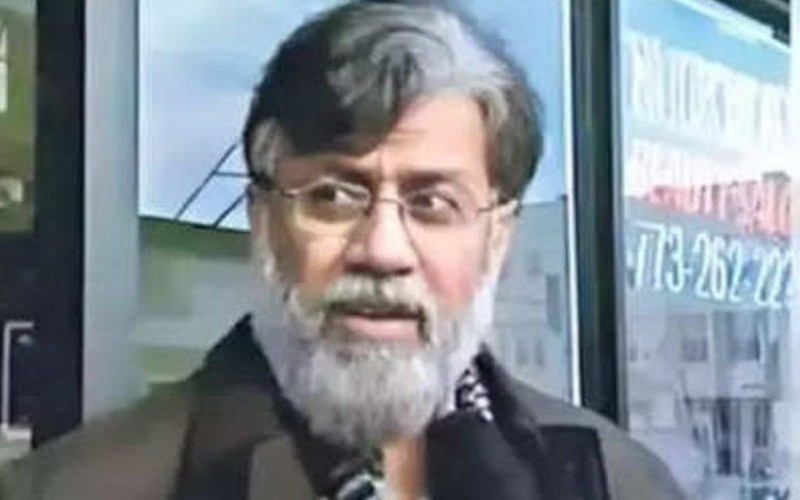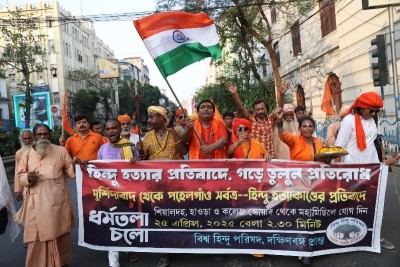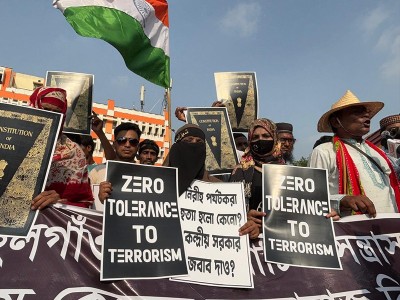
26/11 accused Tahawwur Rana cited 'torture' and 33 health issues to avoid extradition to India
New Delhi: Afraid of facing trial in India, 26/11 Mumbai terror attacks conspirator Tahawwur Rana had cited 33 health issues and risk of ‘torture’ to avoid extradition from the US, media reports said.
Rana had exhausted all legal options to halt the process.
Before his deportation, Rana’s legal team made a final attempt to block it. In a letter dated January 21, 2025, his lawyer John D Cline urged the US State Department to intervene, citing 33 health conditions and the risk of torture in Indian custody. Cline warned that extraditing Rana — a Muslim of Pakistani origin — could lead to his death and would undermine the sanctity of his earlier acquittal in a US court, according to an NDTV report.
His extradition comes just weeks after US President Donald Trump assured Indian authorities of his surrender.
“Rana will face torture if surrendered — especially because he is a Muslim of Pakistani origin charged with participating in the worst terror attack in India’s history,” the letter said.
“He is sure to suffer the harshest and most degrading treatment that Indian authorities can inflict.”
The letter called Indian prison conditions "inhumane" and detailed a long list of health complications Rana is allegedly battling — including Parkinson’s disease, memory loss, disorientation, a potentially cancerous bladder mass, kidney and heart issues, tuberculosis, respiratory diseases, and more.
The lawyer also said Rana had been declining further after five years in a US detention centre.
However, on February 11, the US State Department dismissed the concerns.
Secretary of State Marco Rubio’s office said the extradition complied with international standards, including the UN Convention Against Torture.
The department added it would forward updated medical records to India to ensure continuity of care.
“With the issuance of this warrant, Rana may be surrendered to India at any time. So we need the medical information quickly,” the letter stated.
Now in NIA custody
Rana landed in Delhi on Thursday and has been remanded to 18 days' custody of the National Investigation Agency (NIA).
Investigators are set to question him over his links with a man he met in Dubai before the attacks and the closure of a Mumbai office that was allegedly used by co-accused David Headley to scout targets.
Officials said the agency would also collect Rana’s voice samples to match them against call records and examine his potential ties to other Pakistani operatives, including Ilyas Kashmiri, Abdur Rehman, Zakiur Rehman Lakhvi, and Sajid Majeed Mir — all key figures in the 26/11 conspiracy.
Rana’s links to 26/11
A Canadian national of Pakistani origin, Rana previously served as a doctor in the Pakistan Army.
He is accused of helping plot the 2008 Mumbai attacks, which killed over 160 people.
His role came to light through his childhood friend and co-accused David Coleman Headley, who told investigators that Rana had facilitated his travel to India and allowed him to use a business front — an immigration agency in Mumbai — to mask his reconnaissance work for Lashkar-e-Taiba.
Rana had visited Mumbai with his wife and stayed at the Taj Mahal Palace Hotel, which later became one of the key sites targeted in the carnage.
Support Our Journalism
We cannot do without you.. your contribution supports unbiased journalism
IBNS is not driven by any ism- not wokeism, not racism, not skewed secularism, not hyper right-wing or left liberal ideals, nor by any hardline religious beliefs or hyper nationalism. We want to serve you good old objective news, as they are. We do not judge or preach. We let people decide for themselves. We only try to present factual and well-sourced news.







